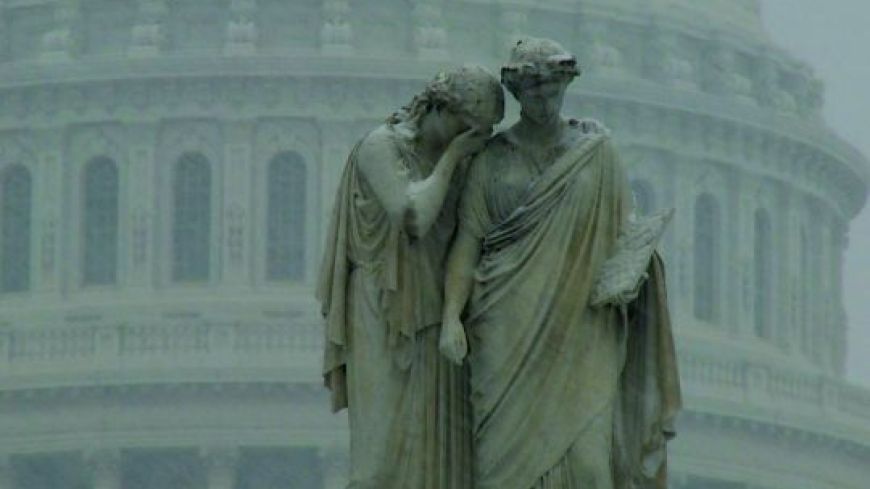
This new documentary from Kirby Dick seeks to do for closeted Republican politicians what his earlier This Film is Not Yet Rated did for the MPAA, namely expose hypocrisy and a self-serving agenda.
Until
the mid-1970s the Republican and Democrat parties did not appreciably
differ on their stance on gay issues. True, a reason for this was
perhaps that before the Stonewall Riot and the birth of the gay
liberation movement there probably weren’t any votes to actually be won
around gay issues anyway.
With the election of Ronald Reagan in
1980 this changed. For Reagan saw the Republicans enter into an unholy
alliance with Christian conservatives, leading to the emergence of the
so-called “culture wars” between progressive/Democrat and
reactionary/Republican elements.
As a consequence, it became all
but impossible for Republican politicians to admit their sexual
preferences to the wider world. The resultant divergence between their
homosexual practices – as interviewees make clear the appellation gay
can hardly be ascribed to many of these individuals – and their
anti-gay preaching to the crowd is unsurprising, the usual hypocrisy to
be expected from politicans.
What was far worse, however, was
the way family values ideals often impacted on their voting within
congress, not just on things like gay marriage and adoption but also
funding to fight the AIDS crisis.
Equally disturbing is the
silence of the mainstream – read straight – media on these issues,
leaving the job of naming and shaming closeted Republicans to gay
activists, press and bloggers.
Much like This Film..., Out Rage is successful in doing what it sets out to, in getting its serious point across adroitly and with considerable wit.
It
proves more limited in its relevance and accessibility however. Whereas
we in Europe are familiar with Hollywood product and, through it, are
indirectly affected by MPAA decisions, what the US as a nation or at a
state level decides to legislate for and against rights remains a
domestic issue.
Thus, for example, whilst under Reagan
Republicans were voting against gay equality legislation and AIDS
funding alike, under Thatcher Conservatives were voting against the
former (i.e. Clause 28) but were devoting money towards the latter,
even if this was perhaps motivated more by the fear of AIDS spreading
beyond gays and drug addicts than any actual sense of compassion for
those with 'deviant' lifestyles.
More serious criticisms are
what is missing even in the US context. That the film is really about
homosexual Republican men, rather than lesbians, bisexuals or
transgendered individuals can at least be explained away by reference
to the party’s male establishment bias, the likes of Sarah Palin
notwithstanding. But, on the other side of the coin, one would thereby
like to know more about the wives and girlfriends of homosexual
Republican: What do they know? What is their understanding of the
situation?
I also felt Dick might have done more to draw out
possible parallels between past and present. One noticeable thing,
again from a UK perspective, is the tell-tale nature of the names of
many of those featured: that a James McGreevey is Irish-American, a
Barney Frank or Larry Kramer Jewish-American. What’s evident is thus
how in other respects Americans have overcome old prejudices and no
longer feel the need to misrepresent themselves in terms of one – i.e.
the WASP – ideal, and the possibility that the self-hating Republican
gay is something of a contemporary analogue to the old cliché of the
self-hating Jew.

